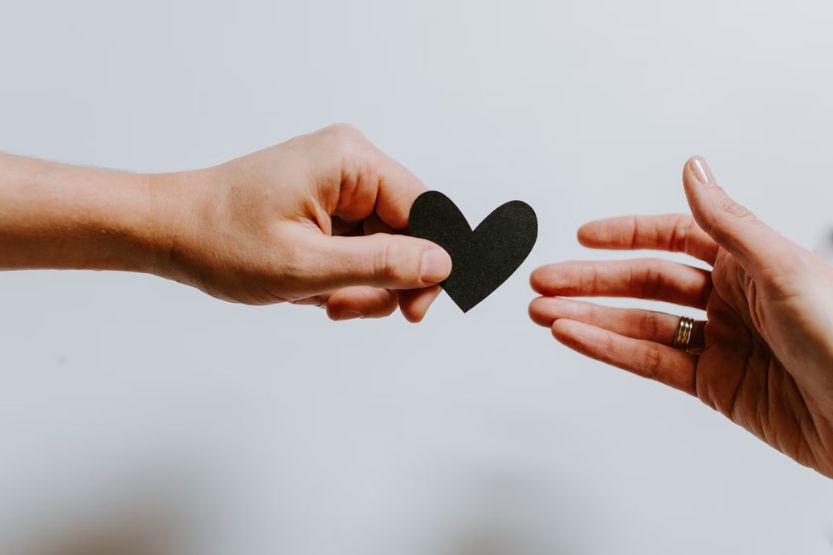“Treat people how they treat you.” You’ve heard this phrase before. It’s a common adage thrown around in many different contexts. But does it have any meaning? And should you follow it?
It means that we should treat others the way they treat us. We should be kind and forgiving if someone is kind and forgiving to us. And we should be cruel and spiteful if someone is cruel and spiteful to us. This can be difficult to apply and practice, especially when you’re dealing with someone who’s been mean to you or hurt you.
Read on to know the meaning behind this popular saying and decide whether or not it’s something you should consider following.
Should You Treat People How They Treat You?

Golden Rule
“Treat people how they treat you” is a golden rule. It is one of the most important things you can do in life, and it’s something that I’ve tried to live by since I was old enough to understand what this means. It’s a simple rule, but it can make a big difference.
Shows Respect and Concern for Other People
The reason why treating people the way you want them to treat you matters so much is because it shows respect, care, and concern for others.
By doing this, we show them that we respect their feelings, emotions, and needs by giving them what they need from us. This makes them feel loved and appreciated, which should be a goal of every human being.
Not Easy to Do
However, it can also be challenging to do. For example, if someone is mean to you because they have cancer, you probably won’t be mean back because that’s not fair.
And if someone is mean to you because they’re angry about something, like maybe they had an unfortunate life event, then it might not make sense for you to get mad at them.
So following this adage is a little bit complicated. Treat people how they treat you, but don’t mistreat anyone just because they treat you poorly.
Examples of Treating Others the Way You Want to Be Treated
You can implement this saying in many forms. We’ll break the examples into three forms: positive, negative, and empathetic:
1. Positive or Directive Form
Be Polite to Other People
It’s as simple as that! This matters because it is important to be polite to others to receive the same level of politeness back. People should care about this because being rude can lead to negative consequences such as upsetting other people and causing arguments or conflict.
By being polite, we can avoid these potential problems and create a more positive and harmonious environment for everyone involved.
Help Out
Why? Because helping others is the best way to ensure they will be willing to help you when you need it. The best way to get people to help you is by being kind and generous towards them. This makes them feel good about themselves, and they will want to repay your kindness with their own.
How to Respond to “What’s Up?” (also Wassup or Sup)
2. Negative or Prohibitive Form
Don’t Be Rude
This is one of the most important rules in life. To get along with people, you must be nice and respectful to them. There is no way around it. You must be nice first if you want people to be nice back. It’s a simple rule that works every time.
Treat Others Fairly
When someone asks for help, it’s easy to decide that you’re too busy or your time is too valuable to give them what they need. But if you want to be treated fairly, you have to treat others fairly too.
You don’t want someone else to deny your requests for help selfishly, so don’t do the same thing yourself! If someone asks for help, give them an honest answer and consider offering some assistance. You’ll feel better about yourself and make a new friend.
3. Empathetic or Responsive Form
I’m sure you’ve heard this before, but it’s true. I’ve seen it at work, with my friends, family, and even myself. When you’re trying to help someone else achieve their goals and dreams, it enables you to achieve yours.
How to Respond to “How Are You Doing?” (With Examples)
Again, what does it mean to treat people like how they treat you? To quote Wiseheart, “[T]o teach people how to treat you, you do not begin with them, you begin with yourself,” so you should treat yourself better. This way, people can get the cue for treating you based on what kind of treatment you accept.
What Is the Problem with the “Treat People How They Treat You” Rule

1. Not Everyone Likes the Same Treatment as You
The most common criticism of this rule, especially when it comes to its application in practice, is that it implies that others would like to be treated equally the same you’d like to be treated, which is not always the case.
This can lead to awkward situations where one person may mistreat another while following the golden rule.
This dilemma, for example, could lead to someone making a blatant romantic gesture toward another person who isn’t interested just because the one making the gesture wants someone to reciprocate the feelings.
This situation is described by the famous Irish playwright George Bernard Shaw: “Don’t do unto others as you would that they should do unto you; their tastes may not be the same.”
What Is the Platinum, Copper, or Golden Rule Inversion?
To remedy this problem, a variation of this rule known as the platinum rule was devised, which says that you should treat people the way they want to be treated. Other names for the platinum rule include the copper rule and the golden rule inversion.
Unfortunately, this principle has also been critiqued. One issue is that it might lead to problems if it drives you to act in a way that goes against your values.
Additionally, there are times when using the platinum rule is impossible. A good example is when you have no means of knowing what other people want or when using the golden rule produces better results, such as when it inspires someone to show more empathy in practice.
As a result, the platinum rule is not necessarily superior to the golden rule, and there are times when using the two rules together or the golden rule alone is preferable.
2. Can Lead to Undesirable Consequences
Another major criticism of the golden rule is that it might lead to unfavorable consequences in some instances when it contradicts other guiding principles. These principles include moral values and other types of legal or social principles.
Here’s an example:
If a person is convicted of a crime and sent to prison, the golden rule suggests that you should release them since you wouldn’t like to be imprisoned. This is true even if you follow the platinum rule because the prisoner would probably wish to avoid going to prison.
However, we can generally address this issue by considering the golden rule as one of the principles we use to regulate our behavior as individuals and as a society.
Follow the Golden Rule with Reservations
In the example given above, the golden rule would not be enough to keep that person out of prison because most people and societies prioritize other laws and ethical standards over the golden rule while still keeping the golden one in mind.
This means they try to follow the golden rule as much as possible, as long as it doesn’t clash with applying a more significant concept.
This concept was expressed in the writings of British philosopher Henry More: “The Evil you would not have done to yourself, you must abstain from doing the same to another — as far as may be done without prejudice to a Third.”
“Treat People How They Treat You” History
This golden rule has a long history in different cultures and religions, going back millennia. Many philosophers have put their spin on this concept, as seen in the following examples:
Philosophy
500 BC
- Confucius (China) – “What you do not want to be done to yourself, do not do to others.”
- Zoroaster (Persia) – “That character is best that doesn’t do to another what isn’t good for itself.”
350 BC
- Aristotle (Greece) – “We should conduct ourselves toward others as we would have them act toward us.”
150 AD
- Epictetus (Greece) – “What you shun enduring yourself, attempt not to impose on others.”
Religion
In the same way, the golden rule has been expressed in different ways by many religions:
Buddhism
“Hurt not others in ways that you would find hurtful.”
Christianity
“Do unto others as you would have them do unto you.”
Hinduism
“This is the sum of duty — do naught unto others which would cause you pain if done to you.”
Islam
“No one of you is a believer until he desires that which he desires for himself for his brother.”
Judaism
“That which is hateful to you, do not do to your fellow. That’s the entire Law — all the rest is commentary.”
It’s important to remember that many of these variants are translations from other languages. Also, remember that some of these quotes’ specific origins and phrasing are unknown.
Nonetheless, the essential takeaway from these examples is that the golden rule’s core concept was common among various groups and languages throughout history.
Frequently Asked Questions – Treat Others the Way You Want to Be Treated: Meaning

What Is the Term Used When You Treat Someone in the Same Bad Way They Treat You?
“Avenge” is a word that means to take revenge against someone who has done you wrong. For example, if someone steals your car, and you find them and take it back, that’s an act of vengeance.
What Does It Mean for How We Should Treat Others?
The golden rule is a moral guideline stating that you should treat people as you would like to be treated. This rule, for example, states that if you want people to treat you with respect, you must also treat them with respect.
What Is a Word for Someone Who Treats Everyone the Same?
Egalitarian. It is a term that describes a social system in which everyone has equal rights and opportunities.
Why Is It Important to Treat Others How You Want to Be Treated?
Treating others how you want to be treated is a universal truth. It’s not just a good thing to do; it’s the right thing to do. When you treat people well, they tend to treat you nicely in return. But when you mistreat people, they’ll likely start mistreating you, too.
And it can be hard to stop the cycle. That’s why it’s essential to ensure that your behavior is always on point so that others will want to emulate it.
Why Should We Treat Everyone Equally?
Everyone in a community should be able to work together, solve problems, and feel safe and cared for if everyone is treated fairly. Equal treatment of people is also a major component of human rights.
As a result, no matter the person’s situation, they should be treated with respect, dignity, and kindness.
Conclusion – Treating Others the Way You Want to Be Treated
Treating people how they treat you can be good if it means treating others with kindness and respect. It also means not stooping to their level when someone treats you poorly.
If someone is actively trying to hurt or harm you, you should remove yourself from the situation as soon as possible. Remember that each person has unique life perspectives and experiences shaping who they are today.
Read next:

![Triangle with Circle Inside Meaning [What Does This Symbol Mean?] triangle with circle](https://howchimp.com/wp-content/uploads/2021/05/triangle-with-circle-300x200.jpg)


